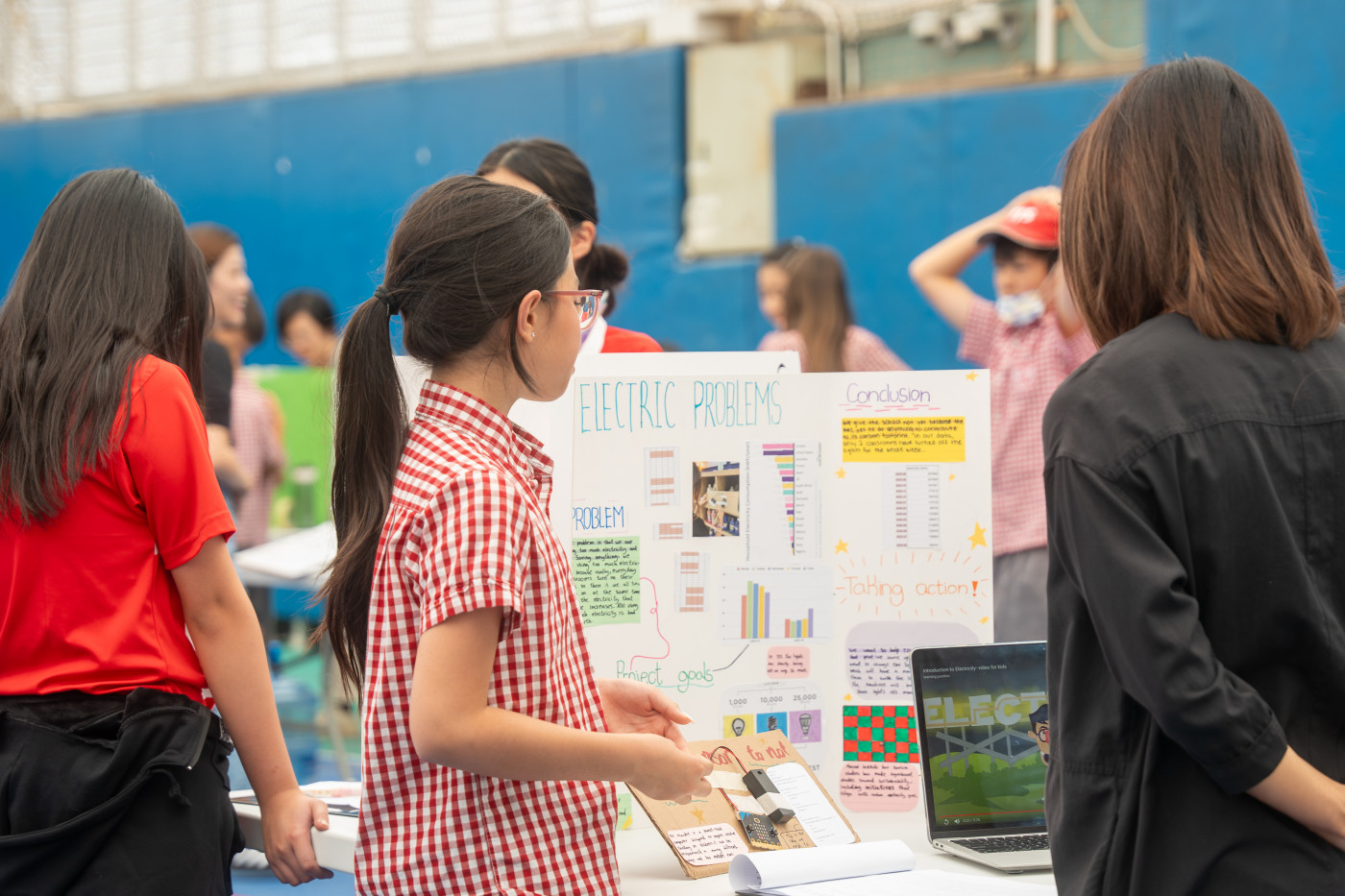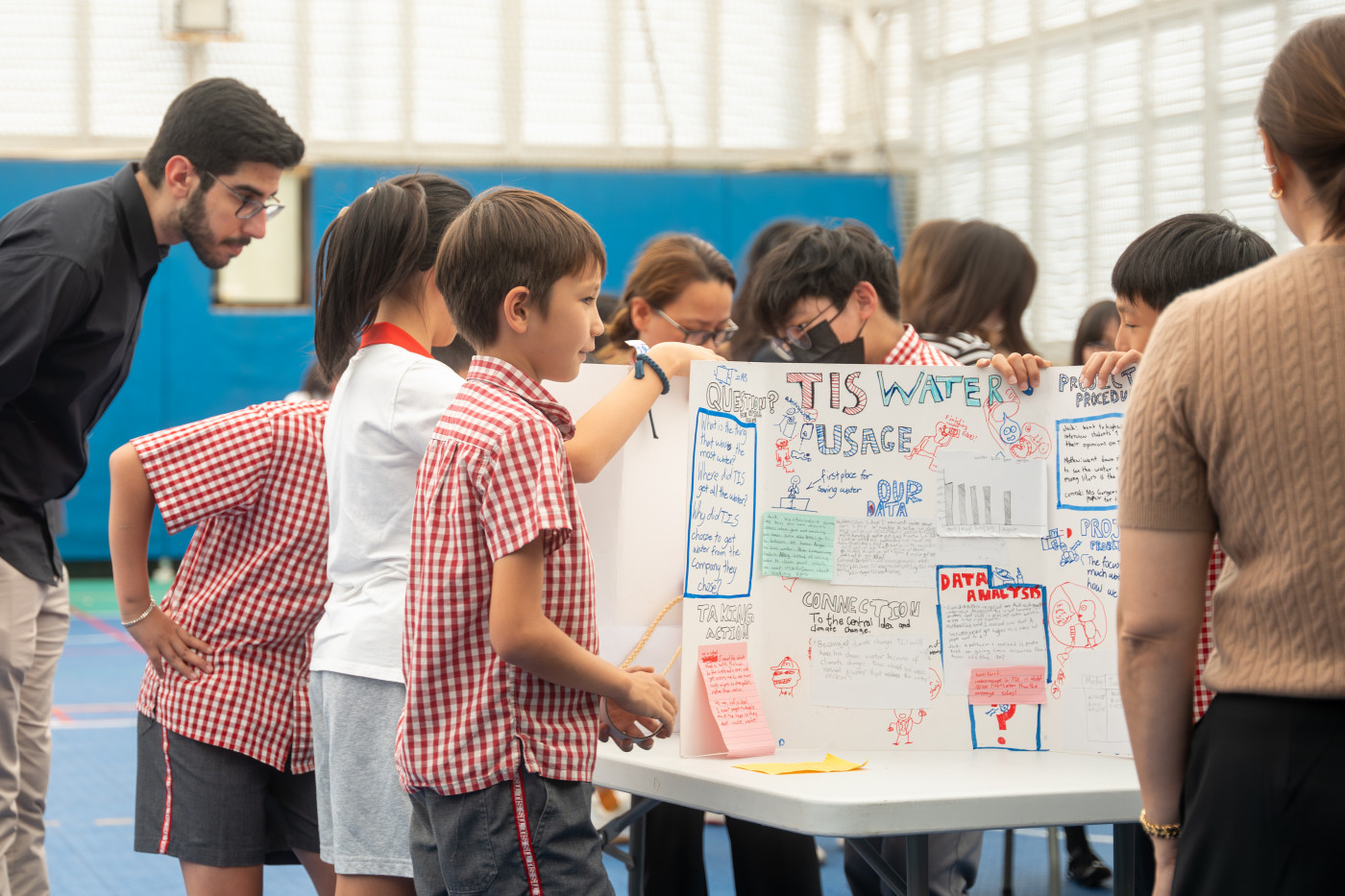
Math as a Creative Tool: How TIS Teachers Math for Life
How Concept-Based Learning Helps Students Think, Create, and Lead
Picture this: it’s a quiet Tuesday evening, and your eight-year-old is excited to share something they’ve discovered: not just a correct answer, but a pattern they truly understand. Maybe it is how multiplying by ten always shifts digits, or how shapes repeat in nature. Fast-forward ten years: your child, now eighteen and preparing for university, confidently tackles complex calculus problems, not by simply memorizing formulas, but by recognizing relationships and solving puzzles.
This transformation is not an accident. It’s the result of years of concept-based mathematics education at TIS, a curriculum that builds deep understanding from the ground up, that equips students for whatever career path they choose.
Traditional math education often focuses on stacking skills quickly, like memorizing formulas, drilling procedures, and moving on. But without a strong foundation, those skills don’t stick. At TIS, we take a different approach. Our concept-based curriculum lays each mathematical idea like a foundation stone, helping students understand how concepts connect and why they matter. Instead of asking “What’s the answer?”, students ask “Why does it work?” and “How else could I solve it?
This mindset turns math into an exciting adventure of discovery. Students explore real-world applications and uncover the link between ideas, and begin to see math as a flexible, creative tool, and not just rules to follow.
At TIS, concept-based approach doesn't replace foundational math skills—it strengthens them.
As students explore the why behind mathematical concepts, they simultaneously develop strong computational fluency. They learn to calculate quickly and accurately, memorize key math facts, and apply standard procedures with confidence. Unlike traditional approaches that teach these skills in isolation, we embed in meaningful contexts, where students learn not just how to perform operations, but why they work and when to use them.
For example, in Grade 1, they are tracking the amount of sleep they get over a week, calculating the amount of hours and minutes, then graphing them in relation to how they felt each of those days. They then build connections to the relationship of sleep, health, and wellbeing while reinforcing math concepts they have been learning.


Success in math isn’t just about getting the right answer - it’s about understanding the problem, choosing the right tools, and explaining your thinking to others. That’s the kind of mathematical literacy TIS nurtures from the earliest grades.
This dual focus creates students who are both precise and adaptable. They can solve mathematical problems efficiently and explain their reasoning. They know when to apply a formula, but also when to question it, tweak it, or try a different approach.
By the time they graduate TIS, students are not only equipped with the technical skills expected in any rigorous math program, but they also have the confidence and flexibility to apply their knowledge across disciplines, in unfamiliar situations, and in real life. This balanced approach ensures that no parent needs to worry about their child missing essential mathematical skills—instead, they can be confident that their child is developing those skills within a framework that makes mathematics meaningful, memorable, and transferable.
Just as important, our students learn to communicate their thinking clearly, and collaborate with others to solve more complex problems, which are essential skills required in modern workplaces and higher education. Because in today's world, success in math isn’t just about getting the right answer - it’s about understanding the problem, choosing the right tools, and explaining your thinking to others. That’s the kind of mathematical literacy TIS nurtures from the earliest grades.
The emphasis on mathematical processes in TIS's curriculum—particularly problem solving, reasoning, and communication—directly aligns with the IB's focus on mathematical thinking and inquiry-based learning. Students who learn through concept-based mathematics are better prepared to tackle rigorous programs. They graduate not only with academic readiness but also intellectually equipped to excel in a complex and evolving world.
After all, in mathematics, as in life, the tortoise who understands the journey will always outpace the hare who merely memorizes the shortcuts.



